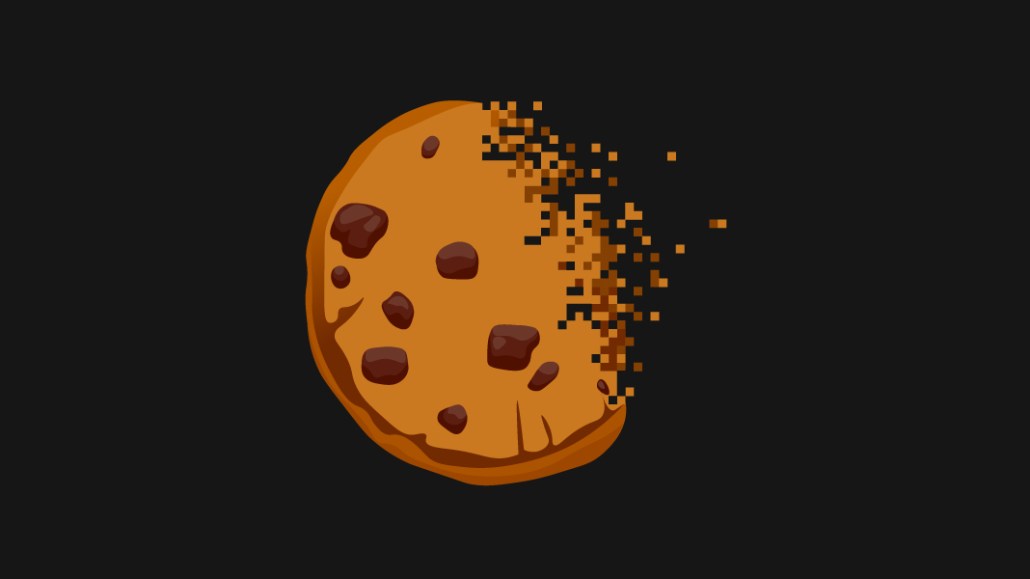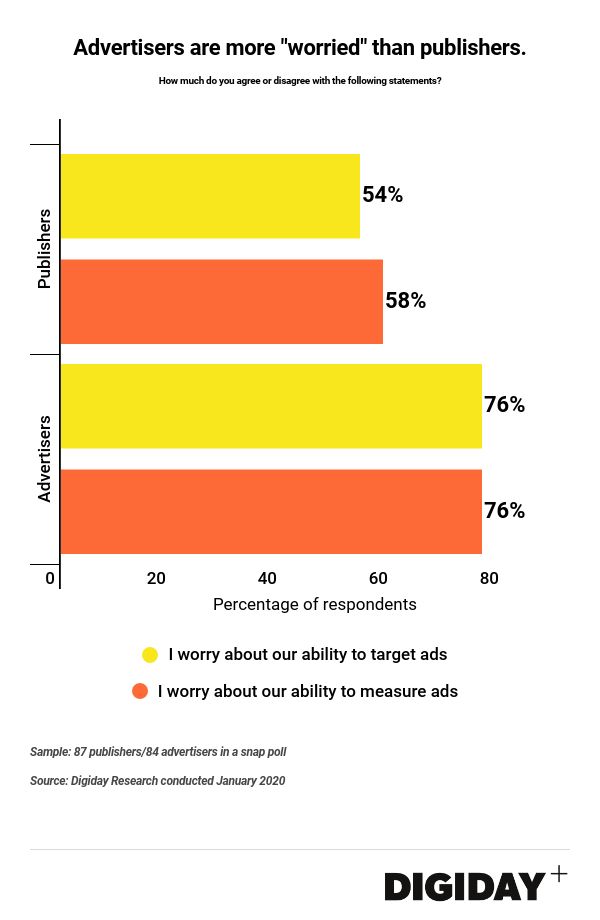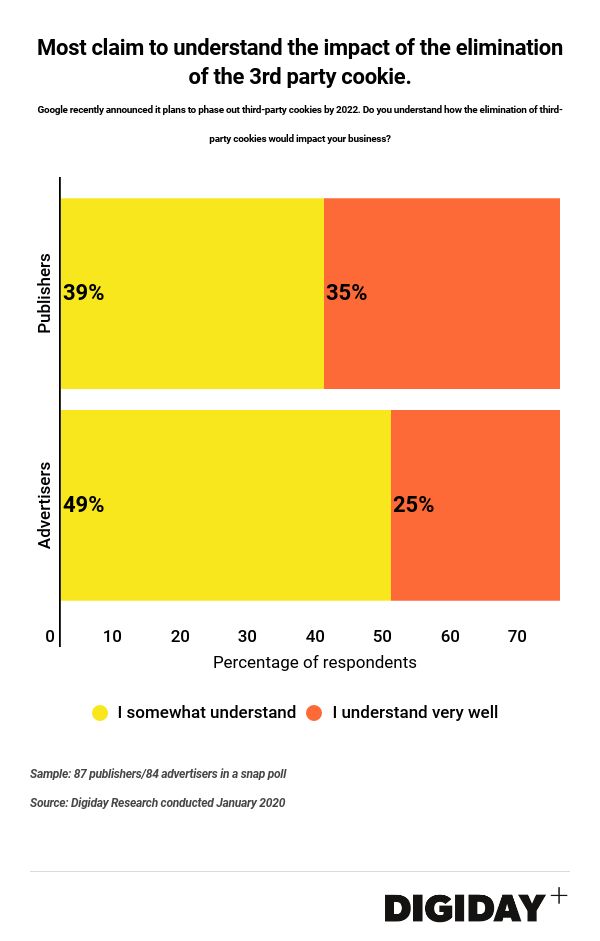Secure your place at the Digiday Media Buying Summit in Nashville, March 2-4
Digiday Research: Advertisers are more worried about the end of third-party cookies than publishers

This research is based on unique data collected from our proprietary audience of publisher, agency, brand and tech insiders. It’s available to Digiday+ members. More from the series →
The end of the cookie is nigh, and advertisers are worried.
A new poll by Digiday Research found that ad buyers inside brands and agencies are more concerned about the effects of the end of third-party cookies than publishers are. About 76% of the 84 buy-side advertising executives polled said in the wake of Google’s decision to phase out third-party cookies by 2022, they worry about their ability to target as well as measure ads.
About 54% of the 87 publishing executives surveyed said they worry about ad targeting in the cookieless future. About 58% of the publishers group also said they are concerned about their ability to measure if their ads are working.
Publishers and advertising players alike have voiced confusion over Google’s intention behind its decision.
Nonetheless, a solid majority of the publishers and buy-side executives recently surveyed by Digiday said they have a firm understanding of how Google’s plans to phase out third-party cookies will affect their businesses: About 74% of the buy-side executives and 74% of the publishers polled said they understand the potential impact. About 25% of both sets of respondents said they did not understand (to varying degrees) how the elimination of third-party cookies would affect their businesses.
Google claimed that its plans to eventually end support for third-party tracking cookies in its Chrome browser is a move that is likely to make browsing more secure. Yet the change will resonate across an entire advertising ecosystem that has long relied on third-party cookies.
For publishers, the end of the use of third-party cookies could mean declines in programmatic ad revenue. That’s a possibility, in view of what happened following Apple’s anti-tracking updates in Safari as well as Mozilla’s moves to make a tracking prevention feature the standard option for Firefox users. For both publishers and advertisers, first-party data is likely to become more important.
More in Media

Media Briefing: Turning scraped content into paid assets — Amazon and Microsoft build AI marketplaces
Amazon plans an AI content marketplace to join Microsoft’s efforts and pay publishers — but it relies on AI com stop scraping for free.

Overheard at the Digiday AI Marketing Strategies event
Marketers, brands, and tech companies chat in-person at Digiday’s AI Marketing Strategies event about internal friction, how best to use AI tools, and more.

Digiday+ Research: Dow Jones, Business Insider and other publishers on AI-driven search
This report explores how publishers are navigating search as AI reshapes how people access information and how publishers monetize content.







